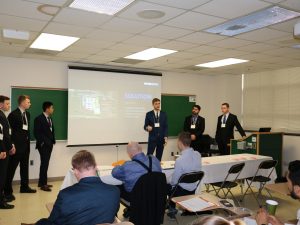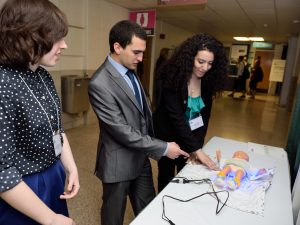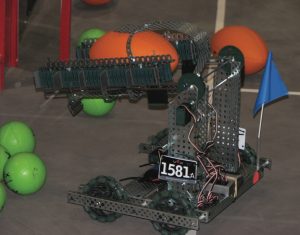Civil Engineering (CE):
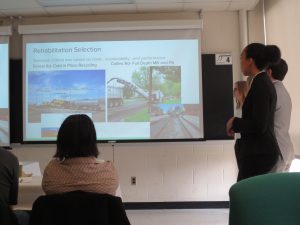
This capstone course prepares students for the work place by providing an experience with the following challenges: a project with multiple issues that must be resolved using civil and environmental engineering knowledge; formulation of conceptual solutions and resolution of conflicting design elements; development of plans that comply with regulations and provide a basis for cost estimates; balancing individual responsibility and group participation in a team based effort; preparation of written reports and oral presentations.
Materials Science (MSE):

MSE466 is a senior level course for Materials Science & Engineering majors providing students with a team-based capstone design experience. A major aspect of this course is to have students apply their course-learned background knowledge and skills in materials science and other disciplines to real-life design problems. A failure analysis investigation (FAI) fits this context. Failures are a major motivating factor for promoting more innovative designs or design changes. A failure analysis investigation provides a unique platform to design and to solve real-world engineering problems via a systematic engineering approach. By focusing on a specific design failure, the student teams learn how to confront an open-ended problem that requires them to develop a strategic design plan and to execute the methodology for assessing how and why the failure occurred. The analysis is conducted using established investigative procedures and constraints for conducting failure analysis investigation. Successfully completed team projects culminate in a comprehensive written final report and a strategic redesign plan to improve the design and mitigate future failures. For Design Day the teams present their findings in half-hour presentations.
Computer Science and Engineering (CSE):

CSE498, Collaborative Design, also known as “The Capstone Experience,” provides the educational capstone for all students majoring in computer science at Michigan State University. Teams of students build software projects for corporate clients. During the Capstone Experience, students: design, develop, and deliver a software system to a client; learn to work effectively in a team environment; develop written and oral communication skills; become proficient with software development tools and environments; learn about system building and system administration; and consider issues of professionalism and ethics.
More information can be found at Computer Science and Engineering Capstone Experience or by contacting Dr. Wayne Dyksen.
Electrical Engineering (ECE):

ECE 480 is required of all electrical engineering or computer engineering majors at MSU. It prepares students for the workplace, or for graduate school, including: putting into practice the technical skills learned in the classroom, on industrially sponsored team projects, under faculty guidance, doing open-ended design, giving them experience in teamwork, project management, product life cycle management legal intellectual property, accommodation issues and entrepreneurship; polishing their communication skills – individual and team – on proposals, reports, resumes, evaluations, posters, web pages, and oral presentations; and requiring each student to complete four individual hardware/software laboratory assignments.
Mechanical Engineering (ME):
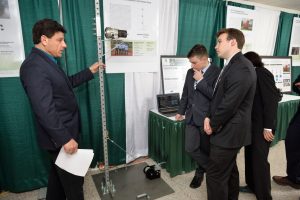
ME 481 is a required course for mechanical engineering majors at MSU. The course provides students with a team-based capstone design experience in which they: use the technical expertise, communication skills, and teaming methodologies they have learned throughout their mechanical engineering curriculum, together with their creativity, to solve real-world problems; collaborate with practicing engineers to address problems sponsored by industry; develop new products or re-design existing products to reduce costs or enhance reliability; interact with large, medium, and small companies in the automotive, defense, aerospace, consumer products, interior design and material processing industries.
NON-CAPSTONE CLASSES
EGR 100
EGR 100, Introduction to Engineering Design, is a college-level course required of all incoming first-year engineering students. It is an integral part of the CoRe (Cornerstone and Residential) Experience. The course introduces students to the engineering profession and the engineering design process through team-based, interdisciplinary design projects and assignments.
ME 412
ME 412 Heat Transfer Laboratory
ME 470
ME 470 Mechanical Design II

